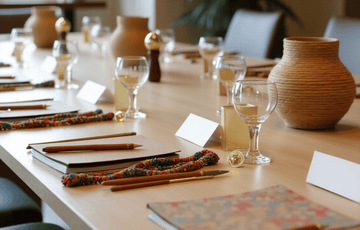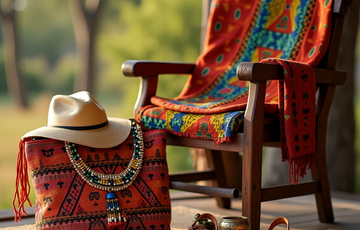The diversity in culture is infinite. Whether it’s related to cuisine, music and the arts, religion, or social practices, all are identifiable components of how we live, and come together as a community. Africa has a rich cultural heritage and so much to offer. It seems that only recently have we awoken to the fact that what was previously seen as purely social capital could be the medium that turns us from a continent of consumers to one of innovators.
For millennia, the hand woven sisal or straw bag, popularly known as the kiondo in the Gikuyu language, was a functional item produced on the African continent. Today, kiondos are recognized as luxurious fashion and interior decor items. This has created a new stream of entrepreneurs selling and using them as design items. These astute innovators have capitalized on the kiondo’s versatility, beauty and functionality - making millions of dollars in the process.

kiondo bags
While success stories of products such as the Kiondos is just one example, it goes to show the potential of the culture economy. The big question for Africa becomes- how do we harness this potential and ensure that it is economically beneficial to all stakeholders?
What is the culture economy?
Africa’s culture Economy takes into account all the tangible and intangible artistic and creative outputs, which have a potential for wealth creation and income generation through the exploration of cultural assets and the production of knowledge-based goods and services-both traditional and contemporary. The culture economy is a new way of thinking about the role of culture in economic development. When we begin to think of culture as an economy, we create precedence for it to be used as a tool for development.
The Culture Economy: An Investment in African Development
The economy and culture are inseparable. With the rise of a culture economy in Africa, the continent’s traditional industries are being transformed into more modern ones. This means that there is a greater focus on design and innovation, rather than just mass production. As such, it is easier than ever before to be part of an industry – even if you don’t have any previous experience in it. It's for this reason that the culture economy is perhaps Africa's largest area for growth. The African Union has identified its role as a priority for its Agenda 2063, with plans to make it one of the key drivers for job creation by 2030. It's an area that can create employment opportunities, empower communities and help spur economic growth. Culture economy, or the heritage art industry, should be embraced as a way to unlock Africa's economic potential and as a tool that can greatly boost continental integration.
Culture economy as a driver for job creation in Africa

Women traders in Nairobi's Maasai market
With the right framework, culture can be harnessed to create sustainable jobs and support communities, while also creating opportunities for young people to use their skills across Africa. In fact, culture generates more than 60% of employment directly or indirectly in countries where it has been identified as a priority sector by national governments (for example Brazil).In this case, it is considered an economic asset for governments that invest in cultural industries as well as local economies where they operate.
Culture economies also boost innovation by providing opportunities to connect people with new technologies (which could lead them away from poverty), while at the same time helping prevent mass migration caused by lack of opportunity at home. A great example of this is the initiative taken by Italian company Efeso- which uses artisans' skills to produce furniture made entirely out of wood which has been salvaged from landfill sites across Africa’s urban areas so that none goes wasted.
This approach will help empower local communities while creating jobs in sectors such as hospitality services, creative industries and manufacturing. In addition, it can strengthen our sense of nationhood by promoting pan-Africanism through celebrating our shared cultures on an international stage.
Building a Culture marketplace
How then, can we make sense of this new paradigm? Where do we start? A culture marketplace, like Mawu Africa, is essential for driving sustainable socio-economic growth, bridging skills gaps, promoting trade, supporting indigenous businesses, accelerating research & innovation and improving social cohesion.
Building a culture marketplace requires everyone to have access to information about each other’s activities so they can plan accordingly. This means that data on which countries have what kinds of laws or regulations around cultural heritage will need to be shared widely across borders. Stakeholders will then be able to make informed decisions at every stage of their operations within a particular country's economy or market. Initiatives like the African Continental Free Trade Area (AfCFTA) are a step in the right direction.
The culture marketplace is a process that requires collaboration between governments, businesses and civil society as well as with local communities who are the primary stakeholders in their own cultural heritage.
The process of building a culture marketplace can be thought of as a series of steps.

Step one is to recognize the potential for economic development in cultural goods and services, which opens up opportunities for new forms of entrepreneurship and employment.
step two is building awareness about these opportunities among creatives and entrepreneurs.
step three is enabling access to resources such as finance.
step four is building capacity within communities so they understand how to develop their own markets.
step five is creating incentives for entrepreneurs so they will start businesses selling cultural products.
step six involves creating systems where buyers can find sellers easily.
finally,
Steps seven through nine involve scaling up these initiatives across different regions.
Africa has a lot to offer the rest of the world, and it's time we started putting its cultural heritage on the map. It's not enough to simply celebrate our diversity by visiting a museum or attending an art show; we need to get creative about how we can use culture as a source of economic growth in Africa. The future of work is going to be shaped by creative industries like fashion, handicrafts, film and music - so why aren't we taking advantage of them?
The continent is on the verge of a cultural renaissance, and it's time for us all to get involved.





